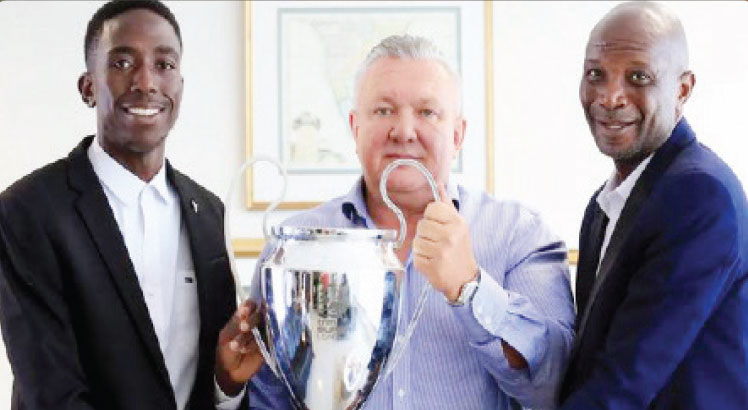House approves K105bn domestic loans for project
Parliament has passed a Bill authorising government to borrow K105 billion from two local commercial banks for the Lake Malawi Water Supply Project to improve water supply to Lilongwe City.
Tabling the Bill in Parliament yesterday, Minister of Finance and Economic Affairs Sosten Gwengwe said the K105 billion to be borrowed from National Bank of Malawi (NBM) plc and NBS Bank plc is equivalent to 30 percent of the total project cost.

He said the remaining 70 percent will be raised through the participation of the private sector where partners will have to buy shareholding in a company to facilitate the project.
Reads the Bill in part: “The objective of this Bill is to authorise the Minister of Finance, on behalf of the Government of the Republic of Malawi, to borrow from NBS Bank plc, National Bank of Malawi plc a sum not exceeding K105 billion to finance the abstraction and treatment of water from Lake Malawi at Lifuwu in Salima and transportation of the treated water through a 112-kilometre transmission pipeline to Lilongwe City under the Lake Malawi Water Supply Project.”
Under the project, also called Salima-Lilongwe Water Supply Project, water will be pumped from Lake Malawi, treated, and then distributed to the residents of Lilongwe.
The minister said the project will be implemented through a special purpose vehicle (SPV) called the Salima-Lilongwe Water Supply Company (SLWSC).
Said Gwengwe: “The board of the company is being restructured in readiness for new stakeholders. Tenure of the loan is five years, moratorium 25 months, and the loan will be at a floating rate of 4.5 percent on the part of NBS Bank.”
He said the decision to source funds locally was arrived at after another company failed to source funding for the same.
The minister said the initial partner failed to source funding for about a year.
He said: “That is when we decided to source funding from local banks who challenged us that they would be able to raise that money.”
Gwengwe said the SPV through which the project will be implemented was established on August 29 2017. It has the Secretary to the President and Cabinet (SPC) and Secretary to the Treasury (ST) as its shareholders while its directors are the SPC, the ST, the Solicitor General and Secretary for Justice and Lilongwe Water Board chief executive officer.
He said the project is expected to start when the full amount is raised.
In his contribution to debate on the Bill, Democratic Progressive Party spokesperson on finance in Parliament Ralph Jooma raised concerns that some key information was missing in the Bill.
He argued that what the House was passing was the Bill and not the minister’s statement. He said in future information such as the loan repayment period and interest rate must be part of loan authorisation Bills.
Jooma, who is Mangochi Monkey Bay leg i s l a t o r, acknowledged that money Bills ought to be dealt with a sense of urgency because any delays may meet with changes in the money market.
On her part, United Democratic Front spokesperson in Parliament Lilian Patel said the Bill has been thoroughly checked by Parliament because, for instance, the Natural Resources Committee of Parliament alone presented reports about its viability three times.
Meanwhile, economist Betchani Tchereni has described the arrangement to borrow locally as a positive development because, among other things, the interest rate is not that expensive.
He said: “Borrowing locally is a plus. You look at the amount being mentioned is rather huge, government may not have that amount of money just sitting somewhere, it needs those resources to be found elsewhere.”
Tchereni also said the PPP arrangement in the project gives the government some powers to be in control in such a way it will not leave the project to be entirely in the hands of the private management which would not be good considering the importance of water to the public.
This is the first time Parliament has passed a Bill to authorise domestic borrowing on this project.
However, the issue of this water project has been coming to Parliament as it was playing its oversight role in which case questions were raised over issues lacking clarity or were questionable.





